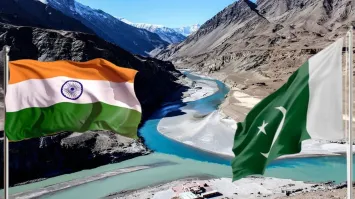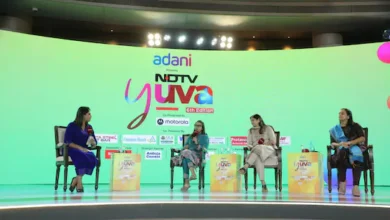India Suspends Indus Waters Treaty in Retaliation to Pahalgam Terror Attack
Strong Measures Include Closure of Attari Border as Tensions Escalate Between India and Pakistan


India Adopts Strong Line Against Pakistan: Suspends Indus Waters Treaty and Attari Border Closure
New Delhi: Stepping in emphatically against Pakistan following the terrorist attack on Sunday in Pahalgam, Jammu and Kashmir, killing 26 including one foreign citizen, India’s top national security body, Cabinet Committee on Security (CCS), has passed strict decisions. The probe in the attack found cross-border connectivity, after which the government resolved to take decisions straight-facedly.
Suspension of Indus Waters Treaty: The most notable of the decisions is the suspension of the Indus Waters Treaty, a treaty signed on September 19, 1960, in the presence of the World Bank. The treaty has endured several India-Pakistan conflicts, including the 1965, 1971, and 1999 wars. It partitions water rights over six river systems, reserving for India control of the rivers Ravi, Beas, and Sutlej, and assigning rights on the rivers Indus, Jhelum, and Chenab to Pakistan.
Foreign Secretary Vikram Misri declared these steps, saying, “The decision to keep the treaty in abeyance will continue until Pakistan credibly and irrevocably renounces its support for cross-border terrorism.” This is a sharp enhancement of India’s enduring grievances over Pakistan’s policy of using terror.
Closure of Attari-Wagah Border: In addition to suspending the treaty, the Integrated Check Post at the Attari-Wagah border has been closed immediately. Individuals with legitimate endorsements can re-enter via this route before May 1, 2025. Additionally, Pakistani citizens can no longer visit India under the SAARC Visa Exemption Scheme (SVES), and all such SVES visas issued to Pakistani citizens stand cancelled, and existing visa holders have been directed to leave India within 48 hours.
Diplomatic Relations Affected: The CCS has also announced naval and air advisers at the Pakistani High Commission in New Delhi as persona non grata, who will have to depart India within a week. As countermeasures, India will also pull out its own military advisers from the Indian High Commission in Islamabad, further cutting diplomatic staff from 55 to 30 by May 1, 2025.
Responding to the suspension of the treaty, Water Resources Minister C.R. Paatil pointed out the previous ultimatums and actions against Pakistan, reiterating the fact that present measures are required to fight terrorism effectively. “This time also, the culprits shall not be spared,” he stated.
The Background to the Indus Waters Treaty: Suspension of the treaty is of critical concern to Pakistan, which has been hit by severe water shortages as a result of high population growth, climate change, and management of water. Experts indicate that the country is facing an impending water crisis and the ramifications of India suspending the treaty are thus extremely dire.
Historical Precedent and Future Implications: The move follows a similar sentiment voiced by Prime Minister Modi following the 2019 Pulwama attack, when he intimated that “blood and water can’t flow together.” At that time, though, the treaty had not been suspended. With recent developments, India’s government seems firm in taking Pakistan to task for actions it views as terrorism.
SAARC Visa Exemption Scheme (SVES) Abolished: In the erstwhile SVES, various categories of dignitaries were exempted from the usual visa formalities. These ranged from judges and parliamentarians to business people and journalists. The abolition of this scheme further deepen the bilateral divide between the two countries.
As India and Pakistan negotiate through heightened tensions, the freezing of the Indus Waters Treaty is a turning point in their relationship, a manifestation of more deeply entrenched tensions over terrorism and water rights. How the two countries react in the next few months will be determinant in the geopolitical contours of South Asia.






